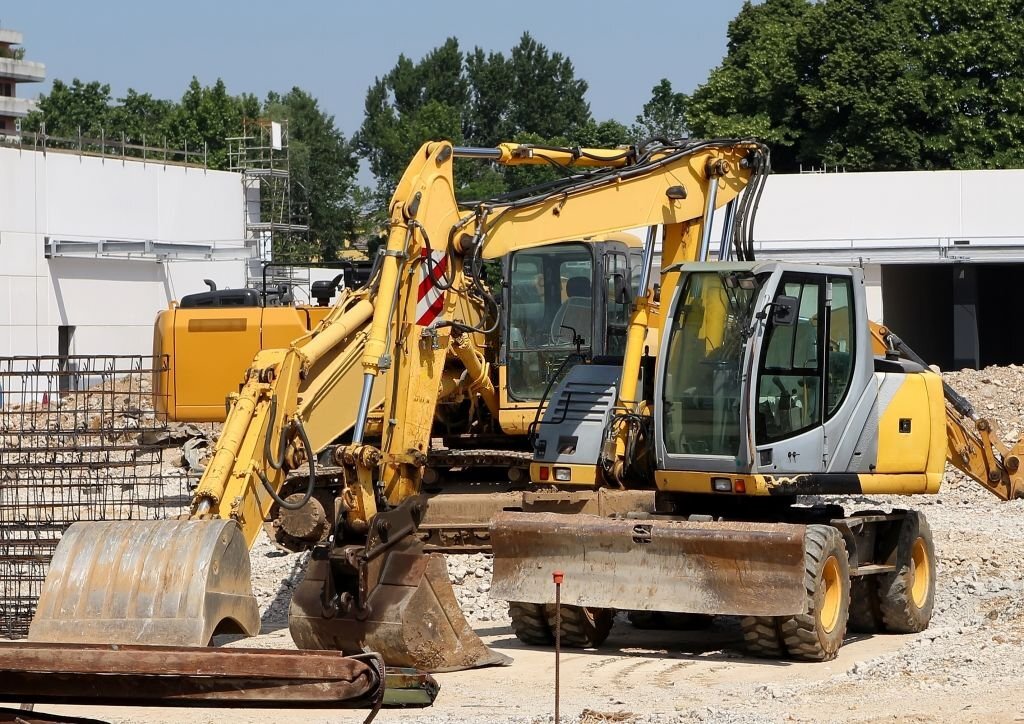
Excavators, a type of heavy equipment widely used in construction and excavation projects, possess distinct features that set them apart from other machinery. While various heavy equipment plays critical roles in construction, excavators offer unique functionality, design, attachments, and capabilities. This article explores the differences between excavators and other types of heavy equipment, emphasizing their prowess in digging, lifting, and material handling tasks. By understanding these distinctions, professionals can make informed decisions when selecting the right equipment for their projects.
Functionality and Design:
Excavators differ from other heavy equipment in terms of functionality and design. Key points to consider include:
- Excavation Focus: Excavators are specifically designed for excavation tasks, such as digging, trenching, and material handling. They excel in precise digging depths, making them ideal for applications that require accuracy and control in excavation work.
- Rotating Platform: Excavators feature a rotating platform, commonly known as the house or upper structure, that allows for 360-degree rotation. This rotational capability enables the excavator to access a broader range of work areas without the need for repositioning.
- Hydraulics: Excavators heavily rely on hydraulic systems to control their movements. The hydraulic system provides precise control over the boom, arm, and bucket, allowing operators to perform intricate tasks with ease.
Attachments and Versatility:
One of the prominent distinctions of excavators lies in their attachments and versatility. Consider the following aspects:
- Wide Range of Attachments: Excavators can be equipped with various attachments to suit different tasks. These attachments include buckets of different sizes and configurations, hydraulic hammers for breaking concrete or rocks, augers for drilling holes, grapples for handling bulk materials, and more. This versatility allows excavators to adapt to a broad spectrum of construction requirements.
- Multifunctional Capabilities: Excavators have the ability to perform multiple functions within a single machine. They can switch between excavation, lifting, and material handling tasks, eliminating the need for additional equipment and optimizing efficiency on the job site.
- Specialty Attachments: Excavators also offer specialized attachments for specific applications. For instance, tiltrotators provide enhanced flexibility and rotation capabilities, allowing precise positioning and maneuvering. These specialized attachments further expand the versatility and capabilities of excavators.
Capabilities and Performance :
Excavators stand out with their unique capabilities and performance characteristics. Consider the following points:
- Digging Power: Excavators are known for their exceptional digging power, thanks to their hydraulic systems and specialized attachments. They can efficiently remove soil, rocks, and other materials, making them indispensable in earthmoving and excavation tasks.
- Lifting Capacity: Excavators have impressive lifting capabilities, enabling them to handle heavy loads with ease. The hydraulic systems and robust design allow operators to lift and maneuver objects safely and precisely.
- Flexibility in Terrain: Excavators are designed to navigate various terrains, including uneven, soft, or challenging surfaces. With options for tracked or wheeled configurations, excavators can adapt to different job site conditions, ensuring mobility and stability.
Conclusion :
Excavators possess distinct qualities that set them apart from other types of heavy equipment. Their focus on excavation tasks, rotating platform design, reliance on hydraulic systems, and versatility in attachments contribute to their prominence in construction and excavation projects.
The wide range of attachments available for excavators enables them to perform multiple functions and adapt to various tasks, eliminating the need for additional equipment. Their digging power, lifting capacity, and flexibility in terrain make them highly capable machines, ensuring efficiency and productivity on job sites.
By understanding the differences between excavators and other heavy equipment, professionals can leverage the unique characteristics of excavators to select the most suitable machinery for their specific construction requirements. Excavators excel in digging, lifting, and material handling tasks, providing the versatility and power necessary for successful construction endeavors.



